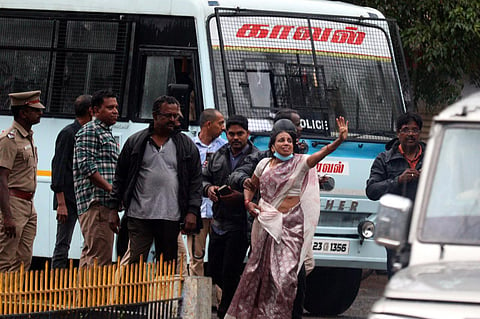SC remission in Rajiv assassination case sets bad precedent
The Supreme Court conflating its Perarivalan case judgment with that of the other six convicts serving time in the Rajiv Gandhi assassination case and setting them free is extremely disturbing. The flawed equivalence set a terrible precedent in a rarest of rare case where the conspirators had sought to plunge a knife into the heart of India. The court normalised a global terror plot by a non-state actor from a neighbouring country to thwart the possibility of Rajiv returning to power in the 1991 elections. It apparently glossed over the diabolical conspiracy that was an affront to our national security and integrity.
Perarivalan was among the 26 who were handed death penalty by a trial court. While some others were freed later, capital punishment was confirmed for him, Nalini, Sriharan and Santhan. The sentences of the rest were commuted to life. The case started sliding after Sonia Gandhi sought and got Nalini’s sentence reduced to life as she had a baby. Subsequently, all other convicts on death row got copycat relief. While commuting the sentence is okay, life must mean life, narrow political interests and legal hair-splitting notwithstanding.
When on May 17 last Perarivalan was granted remission by a different SC bench, it was at least understandable because he claimed his role was limited to buying just a few dry cells for the assassins without any knowledge about their plot. In contrast, the roles of the other co-conspirators in the suicide bomb attack at Sriperumbudur in Tamil Nadu have been clearly documented. For example, Nalini was part of a five-member assassination squad put together by the LTTE. She got the salwar-kameez of the human bomber Dhanu stitched.
The principle established in the Perarivalan case—extended to the rest—is that the governor is bound by the decision of the state cabinet. He can’t pass the buck. Since the governor sat on a TN cabinet resolution seeking remission for all seven convicts, the bench invoked its special powers to grant freedom. But it’s woke verdicts like these that open a window for the undeserving, like in the Bilkis case. While the Gujarat government took a different route, if its cabinet were to now adopt a resolution to free the 11 convicts and get it signed by its rubber stamp governor, case law would deem their remission kosher. Unfortunately, the court went by the letter of the law and not its spirit.

